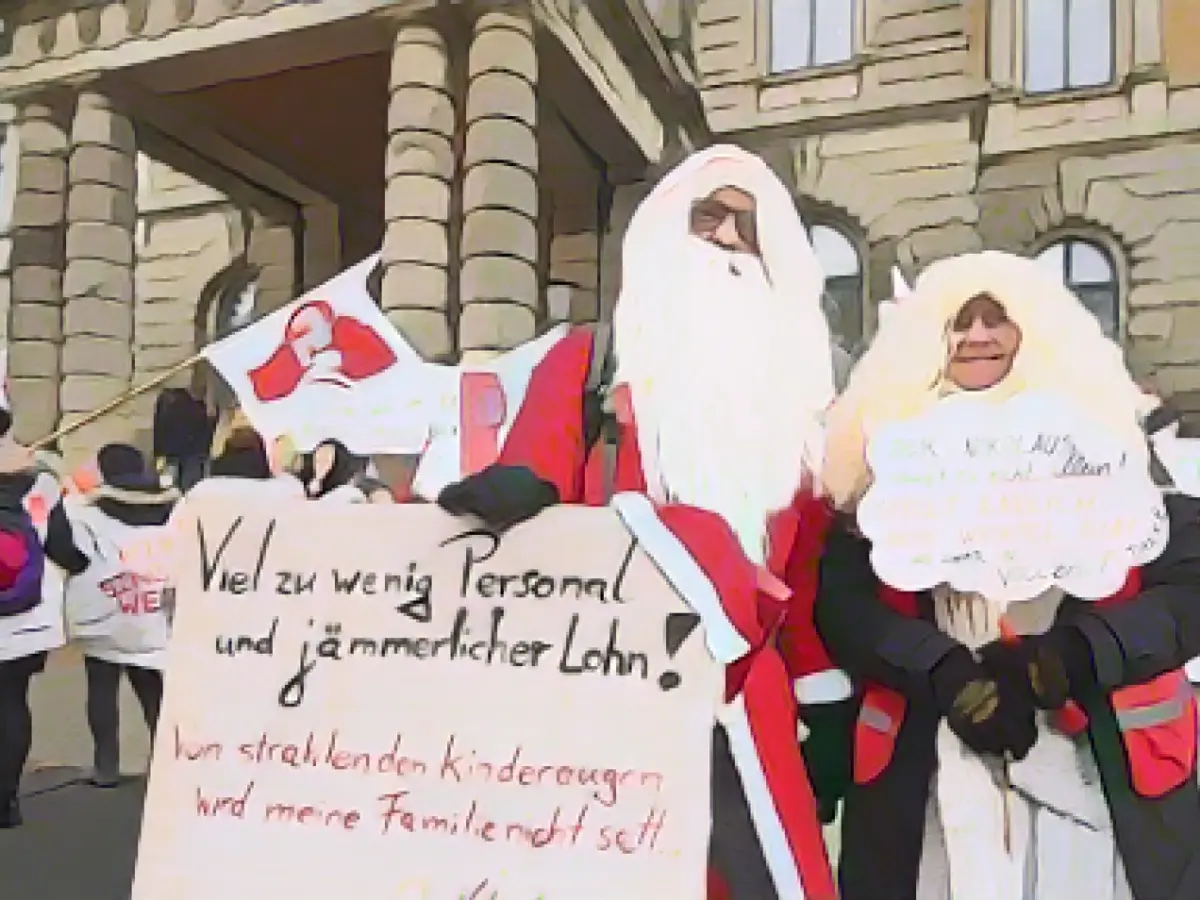Thousands of German Workers Stage Protest and Strikes Over Wages
Thousands of employees across Germany are making their union demands heard as a potential turning point in the public sector wage dispute approaches. According to union reports, approximately 13,000 individuals participated in warning strikes in Berlin, leading to the closure of schools and canceled classes. Protests took place in other cities as well, such as Dresden, Saxony-Anhalt, and Schleswig-Holstein, with thousands joining in the demonstrations.
In Dresden, public sector employees gathered in front of the Saxon Ministry of Finance, demanding higher salaries and improved working conditions. Teachers, university staff, and employees from Sachsenforst, among others, participated in the protest, with organizers estimating their number at 4,500. Similarly, around 3,200 employees in Schleswig-Holstein took to the streets, advocating for better wages.
Negotiations between unions and employers scheduled for Thursday in Potsdam could mark a crucial juncture in the dispute. Verdi and the dbb civil servants' association, representing approximately one million state employees with collective agreements, are seeking a 10.5% income increase and at least 500 euros more, impacting more than three million employees in total.
Additional Insights:
- Warning Strikes at BVG: The third and longest warning strike by Verdi at BVG is set to last for 48 hours, beginning at 3 AM on Thursday and extending until Saturday morning. The demand includes a €750 increase in the base salary with a 12-month contract, a shift allowance of €300 for driving personnel, and a doubling of shift premiums from €100 to €200. BVG initially offered a 17.6% increase spread over four years, but Verdi claims this would result in a real wage cut.
- Broader Public Sector Dispute: Strikes have been called across multiple sectors, including municipal waste disposal services, water companies, swimming pool companies, and hospitals. Verdi has given BVG an ultimatum, threatening indefinite strikes after March 21 if demands are not met. Critics argue that the union's strategy lacks effectiveness and could be more impactful with broad, collective action.
- Rank-and-File Dissatisfaction: There is growing dissatisfaction within Verdi's ranks, with some members calling for more militant action and questioning the union's leadership. A group, the Transport Workers Action Committee, advocates for public negotiations and solidarity among all workers in the public sector.
- Political Context: Germany is experiencing its largest social cutbacks since the postwar era, as the government pushes for rearmament and austerity measures. The election campaign is ongoing, and unions are cautious about organizing large-scale strikes that may jeopardize the government's efforts to secure a stable government through early elections.
[Source: ]








